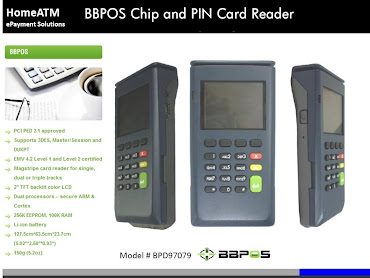Fed insures open loop cards but leave closed loop alone
In November 2008, the Federal Deposit Insurance Corp.'s board of directors approved its General Counsel's Opinion No. 8 requiring the funds held in FDIC-insured banks that secure open loop, stored value cards be secured up to $250,000. According to the FDIC ruling, "All funds underlying stored value products will be treated as deposits and subject to assessments."
The opinion was proposed in August 2005. Following a comment period required by regulatory agencies to allow feedback from consumers, merchants and financial institutions, the final ruling was implemented after all comments were considered.
Additionally, the approval comes in the wake of three large retailer bankruptcies during 2008 in which consumers lost over $100 million in nonused and invalidated gift cards.
"It's a very good opinion," said Gail Hillebrand, spokeswoman for Consumers Union, the advocacy group that publishes Consumer Reports magazine. "It makes it very clear there is a way now for banks to set up prepaid cards so consumers can get FDIC insurance."
Closed loop left out
According to Holli Targan, Attorney and Partner with the Jaffe, Raitt, Heuer & Weiss law firm, funds covered under FDIC insurance include network-branded payroll and gift card products only. Private label (merchant-branded) cards issued and funded by retailers are exempt.
"Explicitly excluded are funds backing closed loop cards, such as cards usable at a specific merchant or cluster of merchants," Targan said. "This Opinion says that FDIC insurance doesn't cover merchant branded cards, so if that merchant goes under, the consumer has no way of recouping their money.
"On the other hand, open loop cards – under the FDIC's definition – that are issued by a bank are covered if the bank fails. The cardholder could then make a claim and not lose the money that was on the card," she added. Cardholder funds for stored value cards held by an insured bank – as opposed to the pool of funds held by the card distributor with closed loop cards – are individually insured to FDIC limits.
New standards right on
"If you think about these new standards for open loop cards, it's just like a savings account at a bank," Targan said. "Banks sometimes go under, but when they are FDIC insured, you have confidence that your money is protected. Consequently, I think generally this opinion will make prepaid cards more attractive to consumers, which is a good thing for the ISOs and MLSs out there selling them."
Federal regulators, according to Targan, have normally been "sort of hands off" in relation to stored value products and have attempted to allow the market to develop without imposing too many regulatory burdens. However, the failings of Sharper Image Corp., CompUSA Inc. and Linens 'N' Things Inc., coupled with a petition filed by the Consumers Union with the Federal Trade Commission, got regulators' attention.
Consumers caught in between
In September 2008, the Consumers Union asked the FTC to protect consumers from losing money on gift cards when retailers filed for bankruptcy. "Gift cards shouldn't be the gift that stops giving when retailers go bankrupt," said Michelle Jun, Senior Attorney for Consumers Union.
Bankruptcy courts treat unused gift card funds as a debt and determine whether a bankrupt retailer must pay it. The retailer must then petition the court to allow it to continue to accept its gift cards. Consumers may lose the value of their cards if the retailer does not make such a request or if the court denies it. The only remaining option for consumers is to file a claim as an unsecured creditor to the bankruptcy proceeding.
"Gift cards have exploded in popularity in recent years, but consumer protections haven't kept pace with the record sales," Jun said. "With more retailer bankruptcies on the horizon, the FTC should make sure that consumers with gift cards are protected when companies go bust."
Prepaid center of attention
Targan believes the General Counsel's opinion is an indication the FDIC and other government entities know what is going on in the marketplace and will impose regulations when they think it's important to do so. Additional regulations recently imposed in several states require securitization of stored value card funds as well as more transparency with banking regulatory agencies.
"Since the last time the Counsel issued an opinion on this topic in 1996, the banking industry has developed new types of stored value products, and therefore they thought it was time to readdress it," Targan said. "I think this should be good for [financial services] because it will give some comfort to people holding or distributing open loop cards that now have the benefit of federal insurance."
All Top Banking
Powered by Blogger.









0 comments